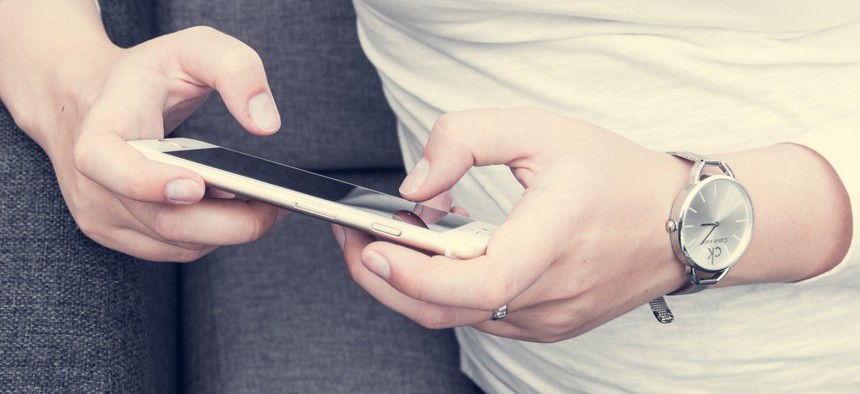
Pixabay.com
Texting Your Office From Home Is Ruining Your Spouse's Work Life
"The conflict you introduce at home doesn't stay there.
Office employees have come to accept that there are no off-duty hours, and work will impede on life at home. Phone calls will need to be made, texts sent, emails responded to. We keep up like this, even though research has proven that all this spillover of work into the home is a serious bummer for both spouses and is stirring up trouble in marriages.
Now, research suggests that the negative effects of being tethered to your job demands through your mobile device are not contained within a household. They also seem to leak into both partners’ life at work, harming job satisfaction and performance for both people, according to a study just published in the Journal of Occupational Health Psychology and based on surveys with more than 300 married couples.
The surveys were designed to look for associations, so the authors can not quantify how many minutes of mobile device use for work was problematic. Nor can they measure how problematic it was. Instead, this research traces the course of destruction, and “provides evidence that organizations ultimately suffer from this practice,” Wayne Crawford, a professor of Management at University of Texas Arlington and lead author of the paper, tells Quartz.
The relationship tension that’s triggered by constant smartphone or tablet interruptions is at the heart of the problem here. It has a corrosive ripple effect, according to the paper. Other research shows that such conflict inevitably affects job performance; people leave home, but ruminate over the stress they’re experiencing there even once when they’re at work.
The conflict itself might best be explained by a theory of psychology that says when people feel like their resources, including time and energy, are stretched, they conserve what resources they do have. So, frantically texting with a colleague may make you less likely to help your partner care for a child, for example. You may not be aware when you’re conserving resources, but someone is nevertheless left to pick up the slack.
Crawford and his team acknowledge that mobile devices are not the only trojan horses that bring work stress home: Work can be ferried into a household in other forms, like in paperwork. But smartphones and tablets are more assertive in their demands of our attention than other media.
And the fallout should be of concern to organizations, says Abdul Rasheed, chair of management studies department at Texas-Arlington, who was not involved in the study. “That extra time spent on mobile devices after hours might not be worth it if the grief it causes results in productivity losses once the conflict is carried back to work,” he said in a statement from the university, adding, “Businesses have to think about accomplishing tasks more efficiently while people are at work.”
Unless you’re lucky enough to work for one of the few companies that protects employees from the work-creep (by outlawing email during vacations, for example), waiting for the company to fix your work-life conflict is probably not the wisest solution, even if that tension may affect your work performance. For now, the onus remains on individuals to find ways to remain present at home, to build walls around family time that are not easily penetrated by a buzz notification.






